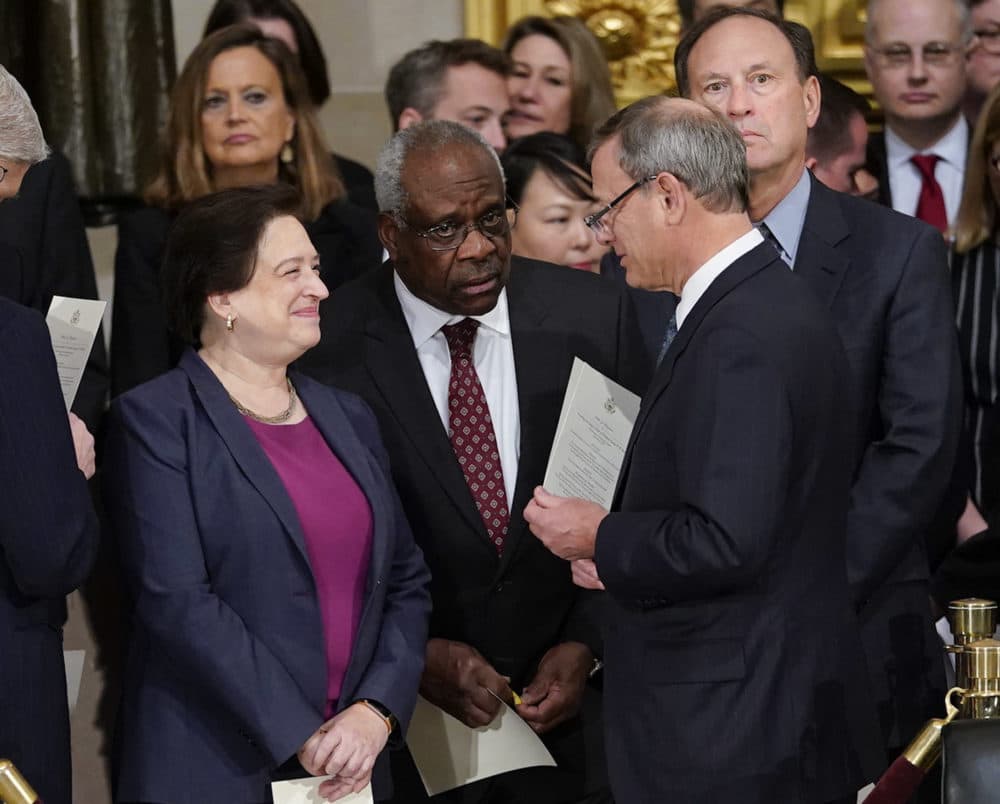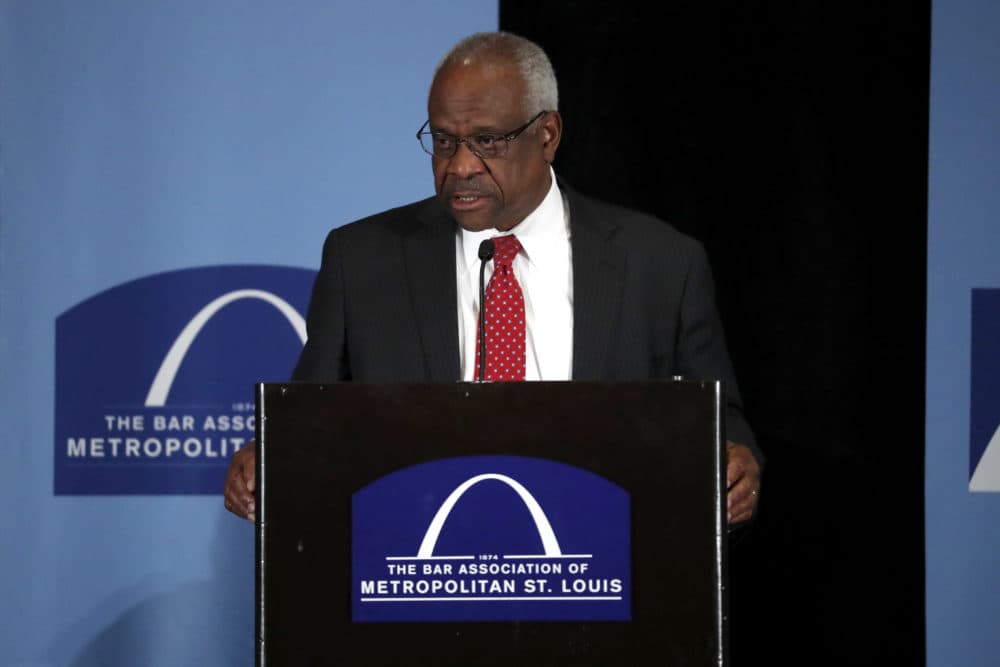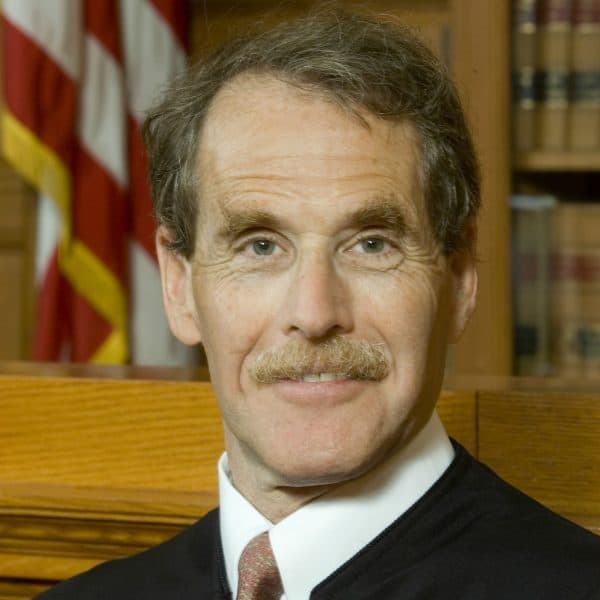Advertisement
Commentary
The Trouble With Clarence Thomas

In an episode of “The Sopranos,” James Gandolfini, playing Tony Soprano, ponders the decline of American masculinity. “What happened to Gary Cooper?” he asks his therapist. “The strong, silent type. That was an American.”
Tony would approve of Justice Clarence Thomas. Thomas has spent years on the bench, extending even to a decade, without saying a word. It's as though he can't be bothered to participate in an important aspect of decision-making. Then, two weeks ago, after a spell of silence lasting three years, he asked several questions in the case of Flowers v Mississippi.
Supreme Court justices’ questions are supposedly directed at the lawyers arguing their cases, but they are often rhetorical — really aimed at convincing the other justices to reach a particular result. Supreme Court cases tend to center on policy and ideology. They are resolved, not so much by lawyers’ arguments on points of law, as by ideological struggles among the nine justices.
So what are we to make of Thomas’ latest vocalizing? Flowers v Mississippi concerns claims of racial discrimination in jury selection. (It is also the subject of a wildly popular and critically acclaimed podcast, “In the Dark,” produced by APM reports.)
Curtis Flowers was tried for murder six times by the same Mississippi prosecutor, Doug Evans. Evans removed almost all black citizens from the jury during each trial, which resulted in a series of reversals and mistrials. The sixth trial ended in a conviction — but not before Evans continued his practice of striking black jurors.

Flowers is a perfect vehicle for the Court to deliver a principled confirmation of its anti-discriminatory 1986 opinion in Batson v. Kentucky, which refuted the idea that unconditional challenges — what lawyers call peremptory challenges -- used to remove prospective jurors may never be second-guessed. After Batson, an attorney is required to provide a non-racial explanation when peremptory challenges lead to a discriminatory result.
In the Supreme Court, the lawyer for the state of Mississippi claimed that Evans had complied with Batson and provided “valid race-neutral reasons for each strike” (despite striking black jurors whose stated views would be perceived as friendly to the prosecution). So it would be understandable to conclude that the state’s bland denial in the face of the egregiously transparent pattern of race discrimination by the Mississippi prosecutor is what drew Clarence Thomas out of his shell.
Understandable, but wrong.
Instead, Justice Thomas spoke to signal to his fellow justices that lawyers for Curtis Flowers had also exercised peremptory challenges — but against three jurors who were white. (Even factually, his insinuation was off the mark. Justice Sotomayor quickly noted that — with one exception — Flowers’ lawyers been left with only white jurors to challenge.) Thomas asked three questions, all on this one subject. In other words, the purpose of Thomas’ rare participation from the bench was “whataboutism.”
... the purpose of Thomas’ rare participation from the bench was “whataboutism"
Thomas has gained notoriety as the strong silent type, but he is not nearly so inhibited off the Court. In 2013, as a guest at the Federalist Society’s annual dinner, he said he was more than willing to ignore precedent contained in long-established cases, if it conflicted with his interpretation of the Constitution.
He’s been doing that a lot. Recently, Thomas suggested that it should be easier for public figures to sue their critics. Coincidentally or not, he is echoing Donald Trump, who dearly wants to expand the use of libel law in response to unfavorable press.
Thomas also attacked Roe v Wade as an example of one “of the Court’s most notoriously incorrect decisions,” shoehorning a gratuitous reference into an entirely unrelated case. (Roe, of course, is highly controversial, but a side comment targeting an ideological hot button is not the manner in which our common law system reconsiders established cases.)
Thomas has gained notoriety as the strong silent type, but he is not nearly so inhibited off the Court.
He also went after Gideon v. Wainwright, a 1963 decision requiring the government to provide lawyers for indigent defendants accused of serious crimes. This remark was based on his belief that the Sixth Amendment guarantees right to counsel — but only if you have the money to hire one.
Finally, Thomas appears to be openly embedded in ideological movements, supporting positions that he should be analyzing from a dispassionate constitutional perspective. His wife, Ginni Thomas, a Washington lobbyist and power broker, frequently seems to serve as Thomas' surrogate outside the Court. She is a vocal opponent of Supreme Court decisions, including those relating to same sex marriage, women serving in the military and voting rights. She recently lead a delegation of conservative activists to meet with President Trump in the White House to address these concerns.
Certainly Ginni Thomas has a right to her own beliefs and her own career. We should not be able to forecast Clarence Thomas' likely votes in future cases by observing her positions, yet they remain a predictor.
It's clear the Supreme Court now has a solid self-reinforcing conservative majority. In that context, the possibility that Thomas' spouse may have a behind-the-scenes influence on his rulings is all the more reason why he should stop the strong, silent bit — and allow his points of law and Constitutional theories to be tested in open debate.
